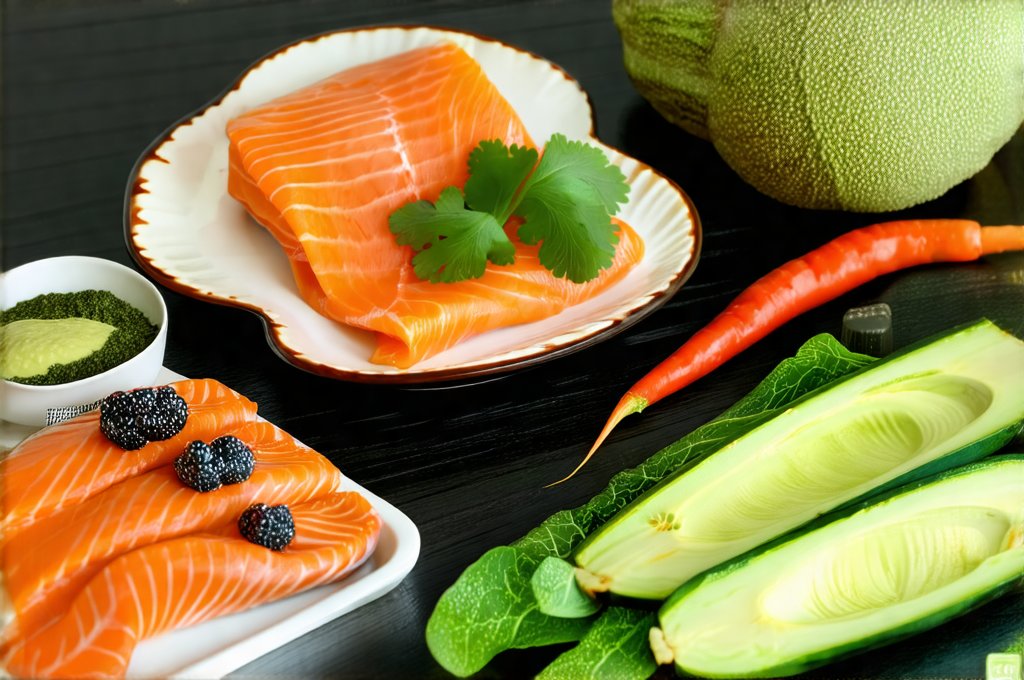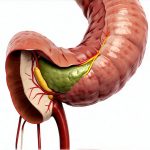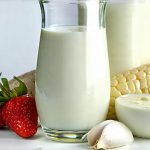Gastroesophageal reflux disease (GERD) is a common condition affecting millions worldwide, characterized by persistent heartburn, acid regurgitation, and sometimes more serious symptoms like difficulty swallowing or chest pain. Managing GERD often involves dietary modifications aimed at reducing stomach acid production and minimizing irritation to the esophagus. However, navigating dietary changes can be particularly complex for individuals following specific diets, such as a vegan lifestyle. A vegan diet, while offering numerous health benefits, inherently restricts certain food groups that are traditionally used in managing GERD symptoms – like dairy products known to sometimes exacerbate reflux. This presents unique challenges and requires careful planning to ensure both nutritional adequacy and effective symptom control.
This article aims to provide comprehensive guidance for individuals seeking to manage their GERD effectively while adhering to a vegan diet. It acknowledges the potential difficulties, debunking common misconceptions, and offering practical strategies for optimizing dietary choices, lifestyle adjustments, and mindful eating habits. The goal is to empower readers with knowledge and tools to enjoy a plant-based lifestyle without compromising digestive health and overall well-being. We will explore specific food recommendations, identify trigger foods, and discuss techniques for mitigating GERD symptoms through thoughtful dietary planning and conscious consumption.
Dietary Strategies for Vegan GERD Management
Successfully managing GERD on a vegan diet hinges on understanding how different foods impact acid production and esophageal sensitivity. While eliminating dairy is already inherent in a vegan lifestyle, it’s crucial to focus on building a diet that actively supports digestive health. This doesn’t necessarily mean strict restriction; rather, it emphasizes informed choices and balanced consumption. Prioritizing whole, unprocessed plant-based foods is foundational. These foods are generally easier to digest and less likely to trigger reflux compared to processed vegan alternatives which might contain high amounts of fat or irritating ingredients.
Many fruits and vegetables are naturally low in acid and can even help neutralize stomach acid. Examples include bananas, melons, cauliflower, and green beans. However, certain acidic fruits like citrus fruits (oranges, grapefruit) and tomatoes can be problematic for some individuals with GERD. The key is to identify your personal triggers through careful observation and elimination diets if necessary. Fiber plays a vital role in digestive health, but excessive fiber intake can sometimes exacerbate bloating and pressure, contributing to reflux. A gradual increase in fiber consumption alongside adequate hydration is recommended.
Finally, pay close attention to fat content. High-fat foods slow down stomach emptying, increasing the risk of acid reflux. While healthy fats are essential for overall health, opt for smaller portions and choose sources like avocado, nuts, and seeds over fried or heavily processed vegan “junk food.” Remember that a well-planned vegan diet can provide all necessary nutrients without exacerbating GERD symptoms – it just requires mindful attention to detail and personalized adjustments. For those transitioning to a more gut-friendly approach, consider these tips for transitioning.
Understanding Vegan Trigger Foods
Identifying personal trigger foods is paramount for effective GERD management, regardless of dietary preference, but it’s especially important on a vegan diet where certain common remedies are off-limits. While the standard list of GERD triggers includes caffeine, alcohol, chocolate, and mint, these may not affect everyone equally. For vegans, potential trigger foods can be slightly different or require more nuanced consideration.
Cruciferous vegetables like broccoli, cabbage, and Brussels sprouts, while incredibly nutritious, are known to produce gas which can increase pressure in the stomach and contribute to reflux. This doesn’t mean you should eliminate them entirely; cooking methods can significantly reduce their impact – steaming or roasting generally produces less gas than raw consumption. Similarly, beans and legumes, a cornerstone of many vegan diets, are high in fiber and complex carbohydrates that can cause bloating. Soaking beans overnight and thoroughly rinsing them before cooking can help minimize these effects.
Another area to consider is the increasing availability of plant-based meat alternatives. Many contain ingredients like coconut oil or soy protein concentrate which, while vegan, can be high in fat or difficult for some individuals to digest. Reading ingredient lists carefully and opting for minimally processed options is crucial. Finally, spices – particularly those known to be irritating such as chili powder, black pepper, and garlic – should be used cautiously and potentially avoided if they trigger symptoms. Keeping a detailed food journal and tracking your reactions can help pinpoint specific triggers and refine your dietary choices. If you’re experiencing indigestion while transitioning to a new diet, understanding these triggers is even more important.
Optimizing Meal Timing and Portion Control
Consistent meal timing and appropriate portion sizes are surprisingly powerful tools in GERD management. Eating large meals overwhelms the digestive system, leading to increased stomach pressure and a higher likelihood of acid reflux. Instead, aim for smaller, more frequent meals throughout the day. This reduces the burden on your lower esophageal sphincter (LES), the muscle that prevents stomach acid from flowing back into the esophagus.
- Avoid eating within 2-3 hours of bedtime: Lying down with a full stomach significantly increases the risk of nocturnal reflux.
- Eat slowly and chew thoroughly: Proper chewing aids digestion and reduces strain on the digestive system.
- Limit liquid intake during meals: Excessive fluid can dilute stomach acid, potentially hindering digestion.
Portion control is equally important. Even healthy vegan foods can contribute to GERD symptoms if consumed in excessive quantities. Be mindful of serving sizes and listen to your body’s cues for fullness. Consider using smaller plates or measuring out portions to avoid overeating. A balanced approach that prioritizes consistent meal schedules, smaller portion sizes, and thorough chewing will significantly aid in managing GERD symptoms while following a vegan diet. Focusing on how to support digestion is key when making these adjustments.
Hydration and its Role in Digestive Health
Adequate hydration is often overlooked but plays a crucial role in digestive health and can directly impact GERD symptoms. Water helps dilute stomach acid, reducing its potency and minimizing irritation to the esophagus. It also aids in food digestion and promotes regular bowel movements, preventing constipation which can exacerbate reflux. However, simply drinking more water isn’t always the answer.
- Timing matters: Avoid excessive fluid intake during meals as it can dilute stomach acid. Sip water between meals instead.
- Choose hydrating foods: Incorporate water-rich fruits and vegetables like watermelon, cucumbers, and celery into your diet.
- Avoid sugary beverages: Sugary drinks contribute to inflammation and can worsen GERD symptoms.
Herbal teas, such as chamomile or ginger tea, can also be beneficial for soothing the digestive system. Ginger possesses anti-inflammatory properties that may help reduce esophageal irritation, but it’s important to note that some individuals find ginger triggers their reflux – listen to your body. Aim for 8 glasses of water per day as a general guideline, adjusting based on activity level and climate. Maintaining proper hydration is a simple yet effective strategy for supporting digestive health and alleviating GERD symptoms within a vegan lifestyle.
Lifestyle Adjustments Beyond Diet
While dietary modifications are essential, managing GERD effectively requires a holistic approach that incorporates lifestyle adjustments beyond food choices. Stress management is paramount as stress can significantly worsen GERD symptoms by increasing stomach acid production and tightening the LES. Techniques like yoga, meditation, deep breathing exercises, or spending time in nature can help reduce stress levels and promote relaxation.
- Maintain a healthy weight: Obesity increases intra-abdominal pressure, contributing to reflux.
- Elevate the head of your bed: Raising the head of your bed by 6-8 inches can prevent acid from flowing back into the esophagus.
- Avoid tight-fitting clothing: Tight clothes increase abdominal pressure and exacerbate reflux.
Regular physical activity is also beneficial for overall health and digestive function, but avoid strenuous exercise immediately after eating. Finally, identify and eliminate any personal triggers beyond food, such as smoking or certain medications, that may be contributing to your GERD symptoms. A comprehensive lifestyle approach, combined with informed dietary choices, will empower you to effectively manage GERD and enjoy a fulfilling vegan lifestyle. Consider managing acid levels alongside these adjustments for optimal results. If following a keto diet, also consider how to manage bloating.


















